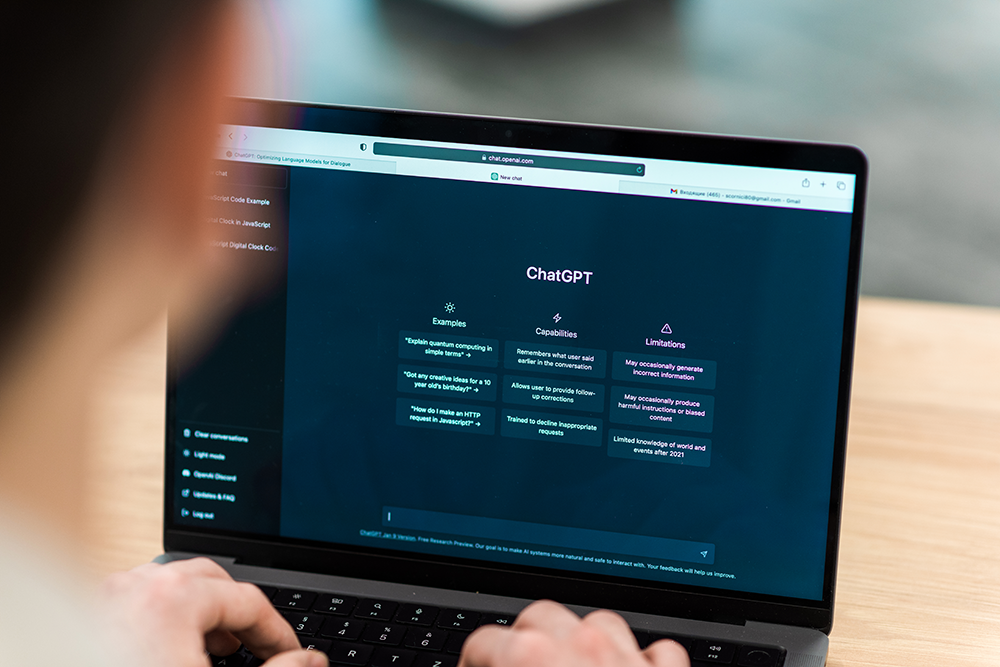[ad_1]
Because the incorporation of synthetic intelligence (AI) expands, so does the complexity and vary of its dangers. Companies are more and more cognizant of those challenges, but the roadmaps to options usually stay shrouded in obscurity.
If the query ‘Learn how to navigate these dangers?’ resonates with you, then this text will function a lighthouse within the fog. We delve into the guts of AI’s most urgent points, bolstered by real-life cases, and lay out clear, actionable methods to securely traverse this intricate terrain.
Learn on to unlock priceless insights that would empower your small business to leverage the efficiency of AI, all of the whereas deftly sidestepping potential pitfalls.
1. Bias in AI-Based mostly Selections
The unintentional inclusion of bias in AI techniques is a big threat with far-reaching implications. This threat arises as a result of these techniques be taught and type their decision-making processes primarily based on the info they’re skilled on. If the datasets used for coaching embody any type of bias, these prejudices might be absorbed and consequently mirrored within the system’s choices.
Instance: Algorithmic Bias within the UK A-level Grading
For instance, contemplate a real-world instance that occurred throughout the COVID-19 pandemic within the UK. With the normal A-level exams canceled because of well being considerations, the UK authorities used an algorithm to determine student grades. The algorithm factored in numerous parts, reminiscent of a college’s historic efficiency, scholar topic rankings, instructor evaluations, and previous examination outcomes.
Nonetheless, the outcomes had been removed from excellent. Virtually 40% of scholars acquired grades decrease than anticipated, sparking widespread backlash. The first concern was the algorithm’s over-reliance on historic knowledge from colleges to grade particular person college students. If a college hadn’t produced a scholar who achieved the very best grade prior to now three years, no scholar may obtain that grade within the present yr, no matter their efficiency or potential. This case demonstrates how algorithmic bias can produce unjust and probably damaging outcomes.
Doable answer: Human-in-the-loop strategy
So, how can we keep away from this pitfall? The reply lies in human oversight. It’s important to maintain people concerned in AI decision-making processes, particularly when these choices can considerably influence folks’s lives. Whereas AI techniques can automate many duties, they need to not utterly exchange human judgment and instinct.
Sectors The place Sole Reliance on AI Selections Ought to Be Averted
The so-called human-in-the-loop strategy is particularly essential in sectors the place AI-based choices straight influence particular person lives and society. These sectors embrace:
- Schooling: As demonstrated by the UK instance, AI techniques shouldn’t solely be liable for grading assignments or predicting college students’ tutorial efficiency. Human academics’ experience and private understanding of their college students ought to play a decisive function in these conditions.
- Healthcare: AI has made important strides in illness analysis, remedy planning, and affected person care. Nonetheless, the potential for misdiagnosis or insufficient remedy planning because of biases or errors in AI techniques emphasizes the need of human professionals in remaining decision-making processes.
- Recruitment and HR: AI is more and more getting used for resume screening and predicting potential job efficiency. Nonetheless, reliance solely on AI can result in biased hiring practices and would possibly overlook candidates with unconventional backgrounds or ability units. A human-in-the-loop strategy ensures a extra complete and honest analysis of candidates.
- Finance and Lending: AI algorithms can consider creditworthiness, however they could inadvertently discriminate primarily based on geographical location or private spending habits, which might correlate with ethnicity or socioeconomic standing. In such situations, human judgment is critical to make sure equitable lending choices.
- Legal Justice: AI is getting used to foretell crime hotspots and potential reoffending. Nonetheless, bias in historic crime knowledge can result in unjust profiling and sentencing. Human oversight can present extra nuanced views and assist stop such injustices.
- Autonomous Automobiles: Although AI drives the operation of self-driving vehicles, it’s essential to have a human within the decision-making course of, particularly when the car has to make moral choices in situations of unavoidable accidents.
2. Violating Private Privateness
Within the quickly evolving digital world, knowledge has turn out to be a pivotal useful resource that drives innovation and strategic decision-making. The Worldwide Information Company predicts that the worldwide datasphere will swell from 33 zettabytes in 2018 to a staggering 175 zettabytes by 2025. Nonetheless, this burgeoning wealth of information additionally escalates the dangers related to private privateness violations.
As this datasphere expands exponentially, the potential for exposing delicate buyer or worker knowledge will increase correspondingly. When knowledge leaks or breaches happen, the fallout may be devastating, resulting in extreme reputational harm and potential authorized ramifications, significantly with tighter knowledge processing rules being carried out throughout the globe.
Instance: Samsung’s Information Breach with ChatGPT
A vivid illustration of this threat may be seen in a current Samsung incident. The worldwide tech chief needed to implement a ban on ChatGPT when it was found that workers had unintentionally revealed delicate data to the chatbot. In line with a Bloomberg report, proprietary supply code had been shared with ChatGPT to examine for errors, and the AI system was used to summarize assembly notes.
This occasion underscored the dangers of sharing private {and professional} data with AI techniques. It served as a potent reminder for all organizations venturing into the AI area concerning the paramount significance of stable knowledge safety methods.
Doable Options: Information anonymization & extra
One essential answer to those privateness considerations lies in knowledge anonymization. This system includes eradicating or modifying personally identifiable data to provide anonymized knowledge that can not be linked to any particular particular person.
Corporations like Google have made knowledge anonymization a cornerstone of their privateness dedication. By analyzing anonymized knowledge, they’ll create secure and helpful merchandise and options, reminiscent of search question auto-completion, whereas preserving person identities. Moreover, anonymized knowledge may be shared externally, permitting different entities to learn from this knowledge with out placing person privateness in danger.
Nonetheless, knowledge anonymization must be only one a part of a holistic knowledge privateness strategy that features knowledge encryption, strict entry controls, and common knowledge utilization audits. Collectively, these methods may help organizations navigate the advanced panorama of AI applied sciences with out jeopardizing particular person privateness and belief.
[ Read also: 6 Essential Tips to Enhance Your Chatbot Security in 2023 ]
3. Opacity and Misunderstanding in AI Choice Making
The area of synthetic intelligence is riddled with complexities, not the least of which is the enigmatic nature of many AI algorithms. As prediction-making instruments, the interior workings of those algorithms may be so intricate that comprehending how the myriad variables work together to provide a prediction can problem even their creators.
This opacity, usually known as the ‘black field’ dilemma, has been a spotlight of investigation for legislative our bodies searching for to implement applicable checks and balances.
Such complexity in AI techniques and the related lack of transparency can result in mistrust, resistance, and confusion amongst these interacting with these techniques. This drawback turns into significantly pronounced when workers are not sure why an AI instrument makes particular suggestions or choices and will result in reluctance to implement the AI’s solutions.
Doable answer: Explainable AI
Happily, a promising answer exists within the type of Explainable AI. This strategy encompasses a collection of instruments and methods designed to make the predictions of AI fashions comprehensible and interpretable. With Explainable AI, customers (for instance, your workers) can acquire perception into the underlying rationale for a mannequin’s particular choices, determine potential errors, and contribute to the mannequin’s efficiency enhancement.
Instance: Leveraging Explainable AI for Reliable Suggestions in EdTech Firm
For example, our workforce DLabs.AI, efficiently employed this strategy throughout a project for a global EdTech platform. We developed an explainable suggestion engine, enabling the coed assist workforce to grasp why the software program really helpful particular programs.
Explainable AI allowed us and our consumer to dissect choice paths in choice timber, detect refined overfitting points, and refine knowledge enrichment. This transparency in understanding the choices made by ‘black field’ fashions fostered elevated belief and confidence amongst all events concerned.
4. Unclear Authorized Duty
Synthetic Intelligence’s speedy development has resulted in unexpected authorized points, particularly when figuring out accountability for an AI system’s decision-making outcomes. The complexity of the AI algorithms usually blurs the road of accountability between the corporate utilizing the AI, the builders of the AI, or the AI system itself.
Instance: Uber Self-Driving Automobile Incident
An actual-world case elucidating AI authorized legal responsibility’s complexities is the fatal accident involving an Uber self-driving car in Arizona in 2018. The automotive hit and killed Elaine Herzberg, a 49-year-old pedestrian wheeling a bicycle throughout the street. This incident marked the primary loss of life on document involving a self-driving automotive, resulting in Uber discontinuing its testing of the know-how in Arizona.
Investigations by the police and the US Nationwide Transportation Security Board (NTSB) primarily attributed the crash to human error. The car’s security driver, Rafael Vasquez, was discovered to have been streaming a tv present on the time of the accident. Though the car was self-driving, Ms. Vasquez may take over in an emergency. Due to this fact, she was charged with negligent murder whereas Uber was absolved from prison legal responsibility.
Resolution: Authorized Frameworks & Moral Tips for AI
To deal with the uncertainties surrounding authorized legal responsibility for AI decision-making, it’s vital to ascertain complete authorized frameworks and moral tips that account for the distinctive complexities of AI techniques. These ought to outline clear obligations for the completely different events concerned, from builders and customers to corporations implementing AI. Such frameworks and tips also needs to tackle the various levels of autonomy and decision-making capabilities of various AI techniques.
For instance, when an AI system comes to a decision resulting in a prison act, it could possibly be thought-about a “perpetrator by way of one other,” the place the software program programmer or the person could possibly be held criminally liable, much like a canine proprietor instructing their canine to assault somebody.
Alternatively, in situations just like the Uber incident, the place the AI system’s extraordinary actions result in a prison act, it’s important to find out whether or not the programmer knew this final result was a possible consequence of its use.
The authorized standing of AI techniques may change as they evolve and turn out to be extra autonomous, including one other layer of complexity to this concern. Therefore, these authorized frameworks and moral tips will should be dynamic and commonly up to date to replicate the speedy evolution of AI know-how.
Conclusion
As you possibly can see, AI brings quite a few advantages but additionally entails important dangers that require cautious consideration.
By partnering with an skilled enterprise advisor specializing in AI, you possibly can navigate these dangers extra successfully. They’ll present tailor-made methods and steering to reduce potential pitfalls, making certain that your AI initiatives adhere to transparency, accountability, and ethics rules.
For those who’re able to discover AI implementation or search help managing AI dangers, schedule a free consultation with our AI expert. Collectively, we will harness the facility of AI whereas safeguarding your group’s pursuits.
[ad_2]
Source link







